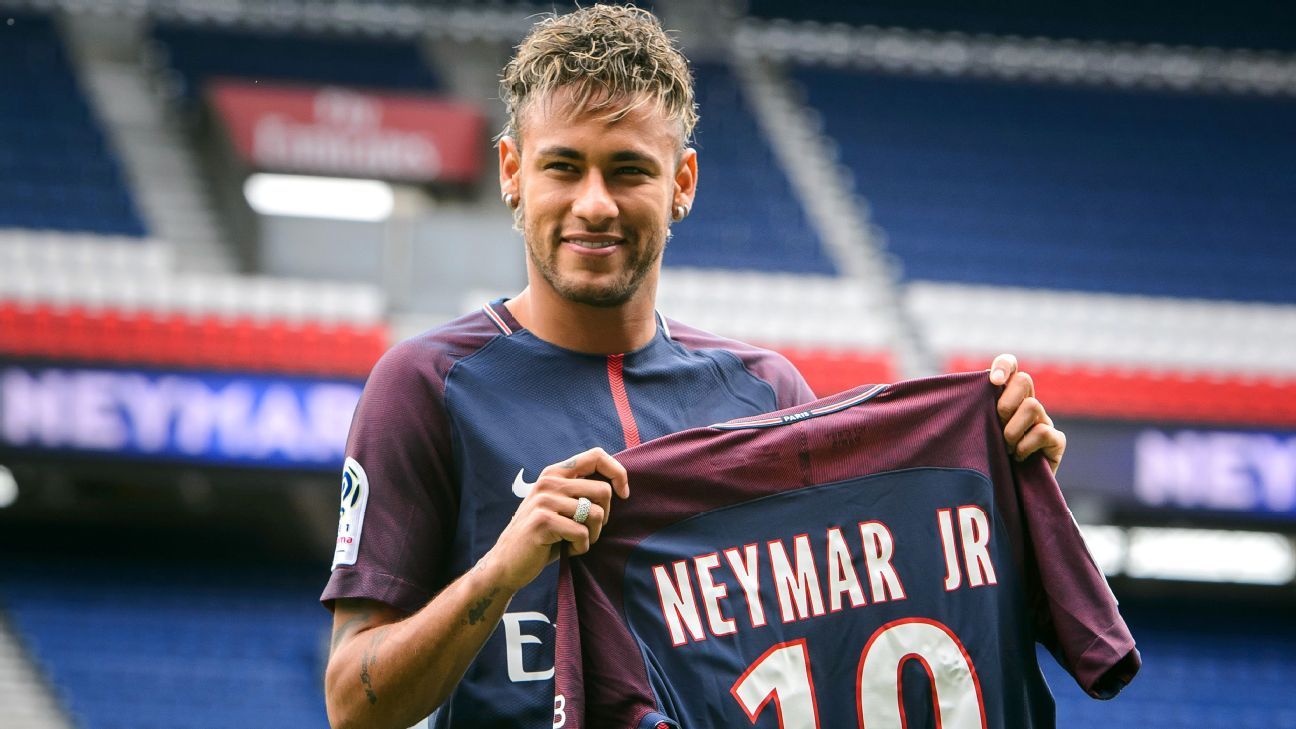Products You May Like
The most recent transfer window was unlike any other, with world-class players like Lionel Messi and Cristiano Ronaldo moving clubs. But that got us thinking …
Drawing inspiration from David Schoenfield’s look at the biggest star every MLB team has traded, we looked at the world of soccer — more specifically, the top clubs around Europe. (You can read the Premier League version here.)
Ronaldo has returned to Manchester United from Juventus for €15m plus add-ons, but it wasn’t so long ago that he was departing Real Madrid for Turin. Barcelona landed superstar Ronaldinho from PSG back in 2003, but the Spanish club had little choice when PSG offered them Neymar‘s €222m release clause.
Here’s a rundown of the biggest stars traded by top clubs around Europe.
– Stream ESPN FC Daily on ESPN+ (U.S. only)
– Don’t have ESPN? Get instant access

The transfer: Sergio Aguero to Manchester City (€40m, 2011)
Others to consider: Antoine Griezmann to Barcelona (€120m, 2019)
Aguero arrived at Atletico Madrid in a €21.7m deal from Independiente in the summer of 2006. Having made his debut in the Argentinian league at the age of 15 and played with Lionel Messi in the youth national teams, the striker came with a big reputation before he had even kicked a ball in LaLiga. He quickly lived up to it, being involved in all Atletico’s league fixtures during his debut season and, though just 17, standing out with his explosive pace, low centre of gravity and unpredictability. He followed up with 19 goals in his second season, by which time he had become more of a traditional centre-forward. Despite being a teenager for most of his time at Atletico, Aguero ended up with 74 league goals before making his move to the Premier League.
Did the transfer pan out for the player? Yes. Not only did he make himself a legend in the blue half of Manchester with his iconic injury-time winner that secured the club’s first league title in 44 years in 2012, but he also became the club’s No. 1 goal scorer of all time (260 in 390 matches). Though City have not been shy in spending over the past decade, landing Aguero has to stand out as one of the best pound-for-pound transfers in the history of the Premier League.
1:15
Ole Gunnar Solskjaer speaks about the arrivals of Jadon Sancho and Raphael Varane to Manchester United.
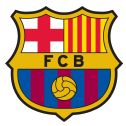
The transfer: Neymar to Paris Saint-Germain (€222m, 2017)
Others to consider: Luis Figo to Real Madrid (€60m, 2000)
Hailed as the new hope of Brazilian football from the moment he emerged from the youth ranks at Santos in 2009, Neymar can look back on an eventful footballing decade as he closes in on 30. From initially looking odds-on to join Real Madrid, he eventually ended up at Barcelona in what was anything but a straightforward transfer. After months of investigation and court cases, it transpired that Barcelona paid a total of €88.2m to bring the 21-year-old to Camp Nou, which was significantly more than first reported — and an astronomical figure for a player coming directly from South America.
Neymar’s four-season stint at Barcelona is probably best remembered for his being one third of the legendary “MSN” front line, in which the Brazilian habitually played as a left winger next to Messi and Luis Suarez. In that famous constellation, Neymar played his part in one of the most entertaining and free-flowing Barcelona sides in modern history. However, Neymar’s last season with Barcelona was his least productive and Paris Saint-Germain’s willingness to pay his €222m release clause was ultimately decent business for Barcelona, even if they failed to spend it well.
Did the transfer pan out for the player? Yes. Though PSG are still waiting for Champions League success, signing Neymar certainly raised the club’s profile. Despite frequent injuries and adverse spells of poor form and frustration, the Brazilian has performed well for PSG and signed a new long-term contract recently.
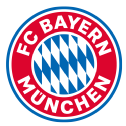
The transfer: Toni Kroos to Real Madrid (€32.2m, 2003)
Others to consider: Owen Hargreaves to Manchester United (€25m, 2007), Douglas Costa to Juventus (€40m, 2018), Thiago Alcantara to Liverpool (€22m, 2020)
A product of the Bayern academy, Kroos made his real Bundesliga breakthrough while on loan at Bayer Leverkusen during the 2009-10 season. By then he had already impressed for Germany at U17 and U19 level as an attacking midfielder, often catching the eye with his brilliant technical abilities. While he grew to become a steady influence in a successful Bayern team (he missed the 2013 Champions League final through injury), it was probably his performances for Germany as they won the 2014 World Cup that brought Kroos to mainstream attention.
In the days following the triumph in Brazil, Kroos signed for Real Madrid for a relatively low fee as his contract was running down. Though Manchester United had long seemed the likely destination, the move allegedly fell apart as Louis van Gaal took over from David Moyes as Old Trafford.
Did the transfer pan out for the player? Yes. Though initially signed by Real Madrid more as a high-quality utility player in central midfield than another world-class star, the German has proved to be highly reliable for the Spanish giants. As the ultimate team player, Kroos seems to adapt to any formation or line-up and has played in practically every midfield role for Real Madrid, even out wide on various occasions. He has been vital in the club’s success both domestically and in Europe.
1:09
Craig Burley reflects on Cristiano Ronaldo’s legacy at Juventus as he leaves Italy without a Champions League title.
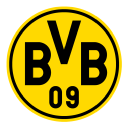
The transfer: Jadon Sancho to Manchester United (€85m, 2021)
Others to consider: Henrikh Mkhitaryan to Manchester United (€42m, 2016), Osmane Dembele to Barcelona (€135m, 2017), Pierre-Emerick Aubameyang to Arsenal (€63.7m), Christian Pulisic to Chelsea (€64m, 2019), Robert Lewandowski to Bayern Munich (Free, 2014)
Sancho signed for Dortmund from Man City in August 2017 for around €8m — a fairly substantial fee at the time for a 17-year-old without first-team experience. Renowned for their well-functioning scouting system, the German club would have seen the impact Sancho had made for England at U16 and U17 level and took a perfectly executed gamble.
The winger played 12 league games for Dortmund during his first season, but from the start of the 2018-19 season there was no holding him back. His exceptional pace, trickery and ability to dribble past defenders — whether on the left, right or through the middle — made the Englishman a fan-favourite in Dortmund and he managed 50 goals and 74 assists from 137 Bundesliga games. After United’s pursuit lasted the best part of a year, the attacking midfielder finally sealed his move back to England in the summer of 2021.
Did the transfer pan out for the player? Time will tell. Having been involved in seven games for his new club, Sancho is still to get on the scoresheet or register an assist. As much as the winger has first-class individual skills, he’s still yet to build an understanding with his teammates. It was his ability to set up and take part in quick combinations and interchanges in the final third that made him such an attacking threat at Dortmund.

The transfer: Ronaldo to Real Madrid (€45m, 2002)
Others to consider: Zlatan Ibrahimovic to Barcelona (€69.5m, 2009), Mateo Kovacic to Real Madrid (€38m, 2015), Mauro Icardi to PSG (€50m, 2020), Romelu Lukaku to Chelsea (€115m, 2021)
While the Italian giants have had their ups and downs over the past few decades, it’s hard to fathom that less than 25 years ago they signed Ronaldo “O Fenomeno” — who had already been made the most expensive player in world football the previous summer when Barcelona paid PSV €15m to sign him — for a world record fee of €26.5m.
A player leaving Barcelona for Inter while in his prime is hard enough to take in, but the Brazilian was undoubtedly the No. 1 player in the world at the time, having scored 34 in 37 league games in Spain. The coup pulled off by Inter’s then-president Massimo Moratti may be the most spectacular piece of transfer business in Serie A history.
The Inter fans had the privilege of enjoying the unbelievable speed, runs, dribbling skills and goal scoring exploits of the Brazilian for a year and a half before disaster struck as Ronaldo suffered a terrible injury to his kneecap, which was to keep him out for nearly two years. If the injury wasn’t horrific enough in itself, it came at a time when the forward was taking his game to yet another level, refining his hold-up game and general centre-forward play. Though the injury may have robbed the world from seeing the very best of this absolute world beater, he did wrap up his comeback season by winning the World Cup in 2002 and picking up the Silver Ball award in the process – with his Real Madrid move materialising shortly after.
Did the transfer pan out for the player? Yes. While Ronaldo had to adapt his game to become a more stationary centre-forward, he still had plenty to offer: his shot was still among the best in the business, just as the close-control, creativity and smartness in small spaces did not left him. Recurring injuries were still an issue for the legendary Brazilian, but he did manage to score 104 goals in 177 games as well as win two LaLiga trophies with Real Madrid before weight issues — and an unimpressed Fabio Capello — caught up with him.

The transfer: Zinedine Zidane to Real Madrid (€77.5m, 2001)
Others to consider: Filippo Inzaghi to AC Milan (€36.15m, 2001), Paul Pogba to Manchester United (€105m, 2016), Leonardo Bonucci to AC Milan (€42m, 2017)
Zidane arrived in Turin in the summer of 1996, a time when French football had a much lower profile internationally and, despite having been named Ligue 1 Player of the Season, expectations weren’t too high from the Bianconeri fans. The France international was reportedly turned down by half a dozen Premier League clubs due to an apparent lack of pace before he opted to move to Italy.
Having predominantly featured as a right winger for Bordeaux, under the guidance of then-Juventus head coach Marcello Lippi, Zidane was moved infield to be a playmaker. The fans quickly fell in love with the supremely talented attacking midfielder, whose vision, ability on the ball and “geometric” appreciation of the game (its angles, space and distances) are arguably the best the world has seen.
Though Zidane immediately grabbed a Scudetto in his first season with Juventus, he was on the losing end of two Champions League finals but secured his only Ballon D’Or title in 1997. In the summer of 2001, he signed for Real Madrid for a world record fee of 150 billion lire (€77.5m in today’s money).
Did the transfer pan out? Yes. The 29-year-old quickly brushed aside the expectations that come with world record fees and “Galactico” tags, slotting straight into a Real Madrid side that comprised world stars such as Luis Figo, Raul, Roberto Carlos and Claude Makelele. He went on to cap his first season with a memorable Champions League winning goal — a volley executed on the spin with his weaker foot — against Bayer Leverkusen at Hampden Park. The “No. 5” added a LaLiga title before he retired in disgrace after the 2006 World Cup final when he was sent off for headbutting Italy’s Marco Materazzi.
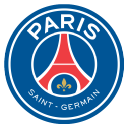
The transfer: Ronaldinho to Barcelona (€32.2m, 2003)
Others to consider: George Weah to AC Milan (€6.9m, 1995)
Already a star for Brazil at youth level, Ronaldinho was snapped up at the age of 21 by PSG, who landed the attacking midfielder from Gremio ahead of their rivals. PSG back in 2003 were nothing like the mega club they are today, so the signing came as quite a surprise.
All things considered, Ronaldinho’s stint in Paris was a successful one. While the team didn’t perform particularly well (ending up 11th in Ligue 1 in second of his two seasons), the Brazilian did show early signs of why he was on the path to becoming the best player in the world; his displays in the grudge matches vs. Marseille tended to be especially memorable. On the flip side, however, Ronaldinho did have frequent run-ins with head coach Luis Fernandez over extra-curricular activities related to the Parisian nightlife and late arrivals back from national team duty with Brazil.
Along with a rollercoaster of a 2002 World Cup (he scored and was sent off against England in the quarterfinals, but started the final to become a world champion), PSG made Ronaldinho into a proper world star and it wasn’t long before Joan Laporta made the playmaker the top transfer priority of his first campaign as a Barcelona president.
Did the transfer pan out for the player? Wonderfully, at first… At Camp Nou he went from being a free-spirited individualist to an accomplished all-round attacking midfielder. Sure, the skills, the trickery and the winding runs that seem to have inspired many video games were still there, but Ronaldinho also often showed an energy and joy of playing football that might still be unrivalled. The Brazilian went on to help Barcelona win their first Champions League title for 14 years in 2006 and picked up the Ballon d’Or in 2005. Sadly, his days in Catalunya ended on a sour note as the excesses of his early days came back to haunt him, and he was departed for AC Milan in the summer of 2008. Luckily for Barcelona, they had a kid called Messi waiting in the wings to take over.
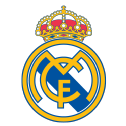
The transfer: Cristiano Ronaldo to Juventus (€112m, 2018)
Others to consider: Mesut Ozil to Arsenal (€47m, 2013), Angel Di Maria to Manchester United (€75m, 2014), Alvaro Morata to Chelsea (€66m, 2017)
After spending nine successful seasons at Real Madrid — winning the Ballon d’Or and the Champions League four times — the Portugal forward surprisingly left Madrid for the Italian champions after a scarcely believable 450 goals in 438 games.
Though the relationship between the club and their superstar had soured, it was widely expected that a new contract, which had been negotiated for months, would finally be signed. But instead of embarking on a 10th season, Madrid’s all-time record goal scorer opted to join Juventus at the age of 33. But while Ronaldo needed a new challenge, the transfer was a bigger catch for the club than it was for the player.
Did the transfer pan out for the player? Just about. It’s hard to argue that Ronaldo failed to deliver at Juventus; his Serie A tally of 81 goals from 91 games is exceptional in a league where the top scorer rarely hits the same numbers as in Spain. On the flipside, though, Juventus came no closer to winning the Champions League with CR7 than they had done without him and they let him return to Manchester United for €15m in 2021.
